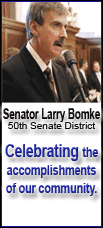 Increasingly skittish employers dropped the ax even harder in September, chopping payrolls by 159,000
- more than double the cuts made just one month before. It was the ninth straight month of job losses. A staggering 760,000 jobs have disappeared so far this year.
Increasingly skittish employers dropped the ax even harder in September, chopping payrolls by 159,000
- more than double the cuts made just one month before. It was the ninth straight month of job losses. A staggering 760,000 jobs have disappeared so far this year.
The Labor Department's report, released Friday, also showed that the nation's unemployment rate was 6.1 percent, up sharply from 4.7 percent a year ago. Over the last year, the number of unemployed people has risen by 2.2 million to 9.5 million.
"Washington, the labor market has a problem," said Joel Naroff, president of Naroff Economic Advisors. "Firms are hunkering down and running as lean as possible. ... We are likely to see more months of job losses before conditions turn around."
The unemployment rate for blacks shot up to 11.4 percent, the highest since late 2003.
Even with Congress' unprecedented $700 billion financial bailout, the faltering economy and the jobs market probably will get worse. Many believe the economy will jolt into reverse later this year
- if it hasn't already- and will stay sickly well into next year.

The unemployment rate could hit 7 or 7.5 percent by late 2009. If that happens, it would mark the highest since after the 1990-91 recession. Some economists say the jobless rate could rise even more before the situation starts to get better.
Pressure is growing on Federal Reserve Chairman Ben Bernanke to do an about-face and lower a key interest rate in a bid to revive the economy. Many now think that will happen at the Fed's next meeting on Oct. 28-29 or even earlier.
The hope riding on such a move would be to spur nervous consumers and businesses to spend more freely again. They've clamped down as housing, credit and financial problems intensified last month, throwing Wall Street into chaos.
On Wall Street, the Dow Jones industrials slid 157.47 points after relief over the bailout plan's passage gave way to worries about the economy.
Friday's employment snapshot is the last before America goes to the polls in November.
Mounting job losses, shrinking paychecks, shriveling nest eggs and rising foreclosures all have weighed heavily on American voters.
The economy is their No. 1 concern. An Associated Press-GfK poll earlier this week showed that likely voters now back Obama 48 percent to McCain's 41 percent. They believe Obama is better suited to lead the country through the financial turbulence.
"I will rebuild the middle class and create millions of new jobs by investing in infrastructure and renewable energy," vowed Obama.
McCain pledged to "open markets around the globe for our products, cut taxes and expand domestic production of energy ... I will create jobs and get the economy on the right track."

White House spokesman Tony Fratto called the latest employment figures disappointing "but not unexpected given the shocks to the economy."
The 159,000 tally of total job losses - government and private payrolls - was the most since March 2003, when the labor market was still struggling to get back on its feet after being knocked down by the 2001 recession. Given a small net gain in government employment, the picture was particularly dark for private employers. They cut 168,000 jobs last month, the 10th month of such losses.